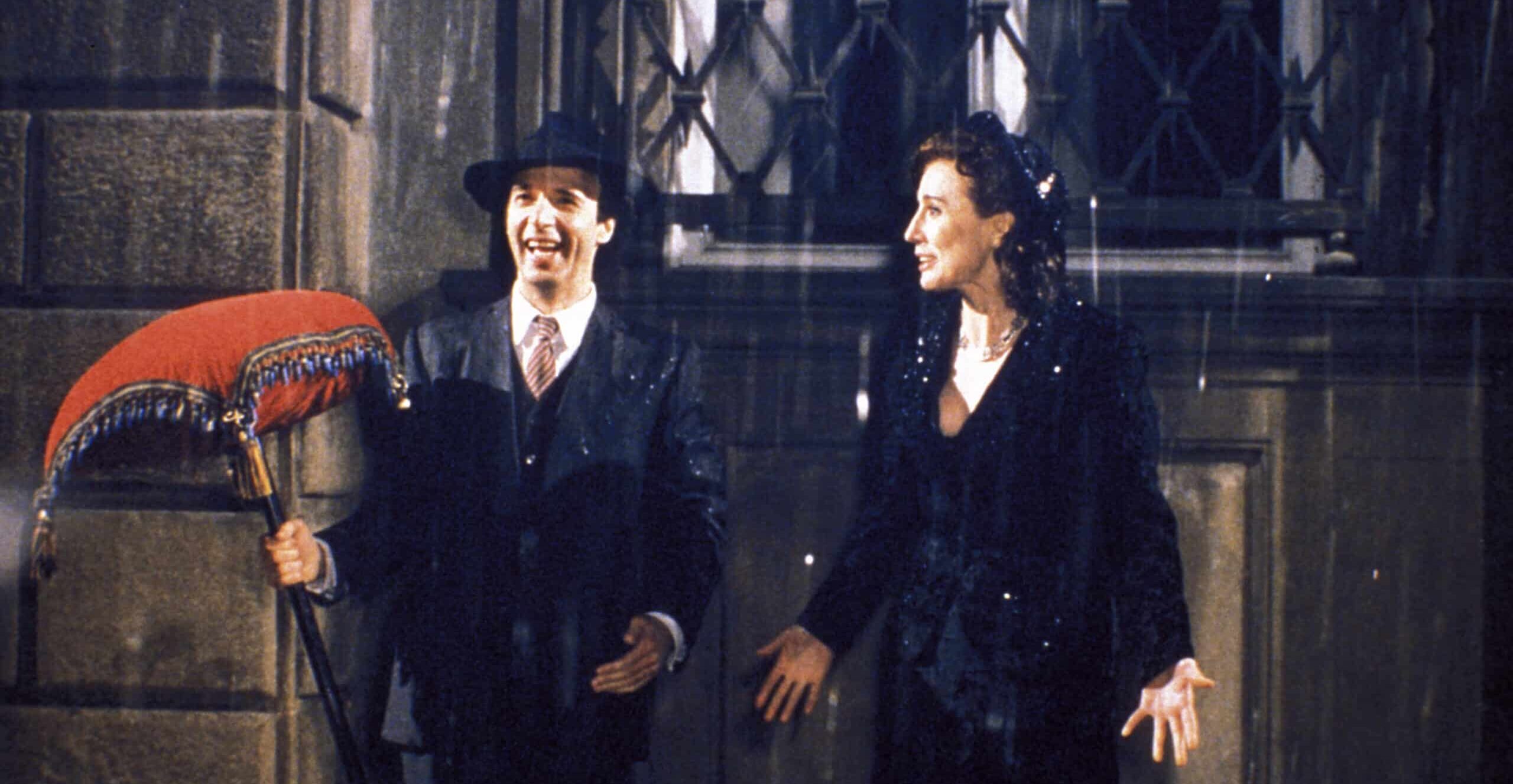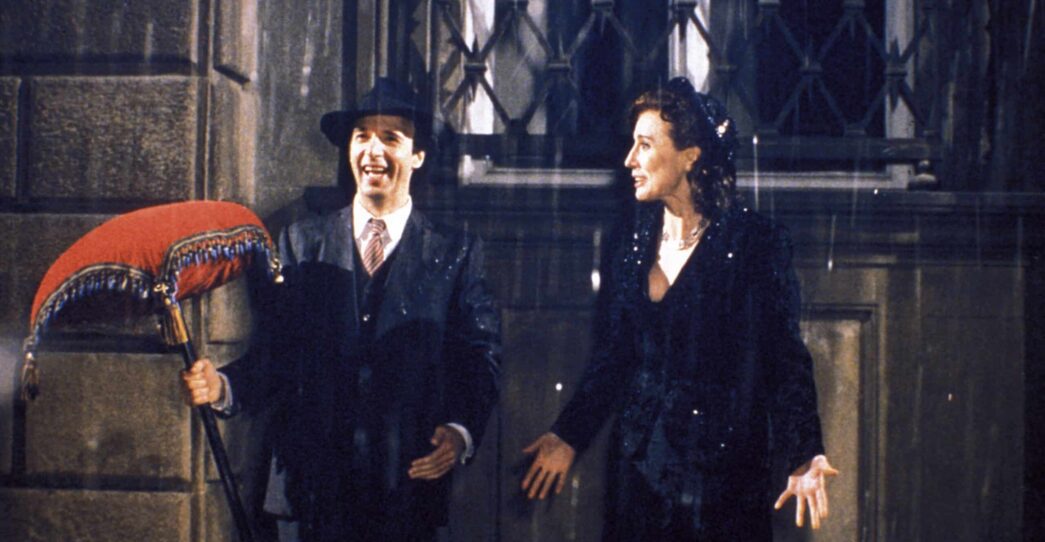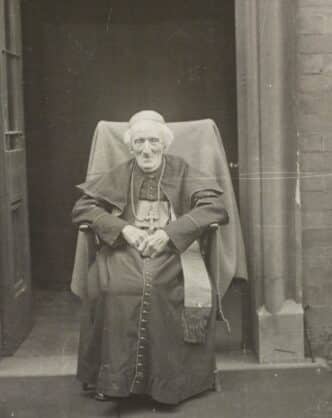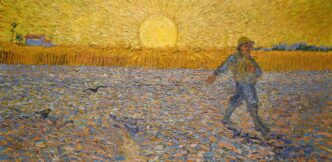He stood on his chair and drew the entire viewing public into his joy. Elation reigned the moment Sophia Loren uttered the words, “And the winner is … Roberto!” Roberto Benigni’s film “La vita è bella” (“Life Is Beautiful”) had just won the Academy Award for best foreign language film. He was not measured nor was he crass; he was unapologetically exuberant. And for the next three minutes and 30 seconds, those who witnessed Benigni’s joy were not just spectators; they were participants. They lived in his world of joy.
Overcome with joy, Roberto Benigni created joy. The joy he experienced was not his own creation but something created for him; the joy of those around him was indeed his creation, in response to what he himself received. “This is a moment of joy,” he proclaimed to the audience, “and I want to kiss everybody because you are the image of the joy! And he who kisses the joy as it flies lives in eternity’s sunrise, says the poet [William Blake].”
Joy begat joy in the man who let it overcome him.
Roberto Benigni’s refulgence on the Oscar stage symbolized the surprising beauty of the film about the Holocaust for which he received two major awards that night in 1999 (the other being his best actor award). The character he played in the film had, over and over again, created orbs of joy for those he loved. It was there in his courtship of his wife and his care for his son. “La vita è bella” is, among other things, a study in what it means to create a world for others, one that brings others joy.
Courting love
“Buongiorno, Principessa!” These are the first and most memorable words with which Roberto Benigni’s character, Guido, acclaims the woman with whom he falls in love. From the start, Guido directs all his joy and his considerable charm toward this woman, Dora, who is absolutely extraordinary in his eyes. Unapologetically, he allows his exuberant joy for her to create an orb of exuberant joy around her whenever he is near.
Dora is a schoolteacher in pre-World-War-II Italy. Since schools have become indoctrinating extensions of Mussolini’s fascist government, Dora, who is not Jewish, is there when antisemitic propaganda is foisted upon the children. Guido, who is Jewish, is unperturbed. Dora is in the school, and Guido wants to be near her. And so, when the schoolchildren are to have a lesson from a fascist government inspector about the new race manifesto, Guido, having arrived early, pretends to be the inspector. When the headmaster invites him to begin his presentation on the race manifesto, Guido boasts of his own looks, which he says are greater than any other’s. He points to his ears and boasts of how bendable they are. Eventually, he is standing in his underwear, boasting of his belly button, which is tied in a perfect little knot that no one can untie. Over and over again, he boasts of the very normal things of his very normal body, proclaiming with verve and confidence that the “racist Italian scientists” have declared him the most perfect specimen anywhere. When the real inspector shows up and sees this ridiculous display, Guido suddenly says, “I must make my Aryan exit and bid you farewell,” before jumping out the window. In all of this, he is seeking to entertain and amuse the woman he desires, but in the process he confuses these young schoolchildren with the ridiculousness of his performance, which reveals the true farce: the race manifesto itself.
Later, on his first unofficial date with Dora, Guido continues to generate an aura of serendipity and surprising delight. Standing beneath an apartment window where he knows that the resident named Mary will throw down a key when called upon, he asks Dora where the key to her heart may be found. She says “Heaven knows.” He calls up, “Maria! La chiave!” And to Dora’s surprise, a key falls right into Guido’s hands.
Guido reads his surroundings with keen perceptivity and a singular devotion to expressing his nascent love to Dora. Over and over again in his company, Dora encounters surprise and delight. His joy for her becomes her own joy. Joy radiates from him and creates an experience of the surrounding world where everything is conspiring toward joy.
Playing for life
Within a few years’ time, Guido and Dora have borne a son together, but the levity of their earlier period of serendipitous romance has been replaced by Italy’s increasingly dark hostility toward the Jewish people. When father and son are taken together for deportation, Dora, who is not home at the time, is left behind without them. She goes to the train station to plead for them, but to no avail. So she asks to be taken on the train, too, choosing proximity to them over freedom alone.
When they arrive at their unknown destination — a concentration camp — Dora is taken to the women’s camp, while Guido and their son are taken to the men’s. Now Guido’s talent for creating a world of love for those he loves will be directed toward their son. Shielding the little boy from the horror of their situation, Guido generates a narrative about a great game, where children all over the camp are competing for a real army tank. The tank will go to the first child who earns 1,000 points.
When the German-speaking Nazi supervisor comes to their bunkhouse to announce the rules of the concentration camp to the prisoners, Guido volunteers to translate from German to Italian, though Guido does not speak German. Instead, he takes all the harsh-sounding German edicts of the Nazi supervisor and turns them into bold and serious rules for the game of winning the tank. To the other Italian-speaking men in their bunkhouse, what Guido says is absolute lunacy, but for Guido’s son, it is all validation of the great game they are now playing.
In the days that follow, Guido goes out in the morning with the other men to undertake the inhumane labor forced upon them, while his son remains behind in the bunkhouse, hiding, in order to “win points” for going unnoticed. Out of his son’s sight, Guido is seen bending over and crying out with lamentation while suffering the prisoners’ punishing work. Yet when he returns to the bunkhouse in the evening, he stands upright and speaks with passion and playfulness for his son. Guido bears what he bears so as to be the constant and sole support for his son against the horror of their surroundings. Guido transforms conditions of utter depravity into a game of hope and resilience for his son.
Later, when he smuggles his son into a dinner for the Nazi officers’ children with the strict order, according to the rules of the “game” they are playing, that his son must not speak (because he doesn’t speak German), a crisis emerges. When his son accidently says “Grazie” to their German waiter, the waiter leaves to get the children’s overseer to inform her that there may be an interloper in their midst. By the time the waiter and the overseer return to the dining room, however, Guido is going from child to child commanding each to repeat after him: “Grazie! Grazie! Grazie!” He creates the appearance of teaching all the children Italian — which he is reprimanded for doing — but the most important appearance he creates is for the sake of his son: His son would have “lost points” for breaking a rule of the game, but his dad covered for him.
The final phase of the game is hide-and-seek. As the camp is being closed down and the remaining prisoners mostly executed, Guido instructs his son to hide in the best hiding spot possible and not leave until it is completely quiet. Guido goes in search of his wife in the women’s camp. When, by the morning, the camp is silent — and not knowing that his father himself has been executed — the son comes out of hiding. The camp is empty. Then the ground shakes, and around the corner an American tank comes into view. This is the tank that will carry the son out of the camp.
What took place in this camp? Unspeakable cruelty, the denial of dignity, outright murder and indeed genocide. But in this film’s rendering, there was also something else: There was a father who absorbed suffering and provided nourishment for his son.
Receiving joy
“This was his gift to me,” says the unseen and till-now silent narrator in the very last scene of the film. It is the voice of a grown man, speaking of what his father did for him long ago. In the scene, the boy is again in his mother’s arms, having just left the camp. The boy shouts for joy to his mother: “We won! A thousand points to laugh like crazy about! We came in first! We’re taking the tank home! We won!”
Many lost. What was lost cannot be counted. Lives discarded, histories torn down, families destroyed, memories squashed. People with dignity, made in the image of God, violated and erased from the eyes of the world. Is it possible, even in such gloom, for light and joy to abide? What limits are there for acts of creation?
In his acceptance speech at the Oscars, Roberto Benigni dedicated his award to “those who are not here, [those who] gave their lives so that we could say ‘Life is beautiful.'”








